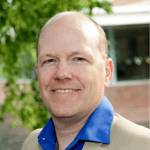Recent Posts by Phil Rigdon
Digging Deeper into Scripture: John 20:19–31
When we use the expression “take my word for it,” we are asking another person or group to trust that what we are saying is true. More specifically, we are asking this person or group to trust us. The strength of the relationship is as central as the truth being shared. Consider how many things we take on the word of another. Grandparents share events which took place in family history decades before we were born. Historians teach of wars that shaped the course of human history as if they had been there themselves. Friends and family tell us of places to which we have never been. Although we have never experienced these events and places firsthand, we believe the words of those we trust. The same can be seen in God’s Word.
Digging Deeper into Scripture: Mark 10:35–45
I grew up reading comic books (often when I should have been studying). I was fascinated by the heroes, stories, art, and action. Back then, you could buy comic books at the grocery store. I remember many times standing at the comic-book rack—reading the Hulk, Captain America, the X-Men, the Avengers—and having a store employee offer the terse remark, “This isn’t a library.”
More than any other hero, I loved Spider-Man. I think it was the costume and his set of powers. If you are familiar with the hero, then you know that his real name is Peter Parker, and he was raised by his aunt and uncle, Ben and May Parker. In the story, Uncle Ben offers his nephew an important piece of wisdom that sticks with Peter throughout his life: “With great power comes great responsibility.”
Digging Deeper into Scripture: Genesis 22:1–18
The United States enjoys what is largely a free-market economy. Those entering and competing in the free-market economy vie for the attention of the consumer and do so, in part, with slogans or catchphrases designed to capture the attention. We hear or see examples of these slogans constantly on the radio, TV, and even in print magazines. One slogan that comes to mind is from Porsche. Summarized, the idea behind the slogan for Porsche is that this brand of car is so wonderful that there can be no substitute. If you want to drive a nice vehicle, it must be a Porsche.
Digging Deeper into Scripture: Ephesians 5:22–33
When working with couples in premarital counseling, we study a range of topics germane to wedding and marriage, such as finances, children, in-laws, chores in the home, expectations, and the like. Our first session appropriately addresses related spiritual topics. The three I normally stress are God’s design for marriage, raising children in a Christian home, and roles within marriage. When discussing roles within marriage, the couple and I explore Ephesians 5:22–33.
Digging Deeper into Scripture: Psalm 126
In this psalm, after the Israelites had been exiled in Babylon for seventy years, we see God’s restoration of His people—not merely restoration from exile but foreshadowing our spiritual restoration in Jesus’ death and resurrection, as well as the total restoration to come at Christ’s return.
Digging Deeper into Scripture: 1 Thessalonians 5
When I was eleven years old and in sixth grade, my mom took me to an informational meeting at church regarding Boy Scouts of America. Attendees discussed the idea of organizing, or I should say reorganizing, a troop. The organization came to fruition, and I was blessed to take part until my eighteenth birthday, when I completed my Eagle Scout rank. My scout leaders taught me a great deal regarding citizenship, the outdoors, manhood, self-reliance, responsibility, and more.
Digging Deeper into Scripture: Isaiah 5:1–7
With the onset of autumn comes the end of summer work at our house. One of our summer projects each year is growing tomatoes. We make every effort to create the ideal growing environment for them. We purchase large animal watering troughs that we fill with high-quality soil, water daily, fertilize, and trim off any dead fruit or branches. Nevertheless, we struggle with all the things that can go wrong with tomato crops: early blight, late blight, cat’s face, splitting, and the like. Despite all our efforts, the plants usually produce less than we desire.
Digging Deeper into Scripture: Matthew 18:15–20
During nearly thirty years of professional church work, I have often wondered which sin is most damaging to the local congregation. In my experience, it is not disregard for worship and Bible study, arguments over money, lack of unity regarding mission and ministry, lack of forgiveness, theft, or even adultery. In my experience, the single sin which most damages congregations is mismanagement of conflict between brothers and sisters in the faith. There are numerous reasons. Foremost, this mismanagement destroys trust, which damages relationships. But it also breeds gossip and character assassination, which can lead to loss of good reputation and even loss of employment. Mismanagement of conflict blurs the facts and leaves the conflict unresolved. Such unresolved conflicts are infected wounds in the Body of Christ. Let’s look at what Jesus has to say.
Digging Deeper into Scripture: Matthew 14:22–33
Telling nice people things they don’t want to hear is an unavoidable part of being a faithful pastor. On one occasion, a pleasant couple from the neighborhood came to my office. The husband and wife wanted to know my opinion of ghosts and spirits.
Digging Deeper into Scripture: Matthew 13:1–9, 18–23
It seems the land on which our house is built is the perfect breeding ground for thistles, a particular type of weed that is painfully prickly and extremely difficult to remove. No matter how many plants my wife and I remove, there are always more. Related to this month’s reading from Matthew, the parable of the sower, these thistles can grow abundantly regardless of the location or quality of the soil.




















